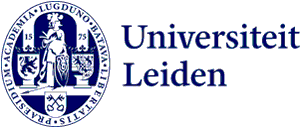
Ukraine, Gaza, climate and migration: Geopolitics increasingly on the municipality’s plate
From cities that sometimes deviate from national foreign policy to the direct influence of geopolitics on local developments, PhD candidate Pieter Jeroense, director of VNG International, examined seventy years of the internationalisation of Dutch municipalities and observed notable trends.
When did the idea for your research originate?
‘I have now been working at the Association of Netherlands Municipalities for eight years, but the idea for this research is much older. When I moved from the Ministry of Foreign Affairs to municipal organisations in Alphen aan den Rijn, Leiden – my city – and Rotterdam, I noticed how differently municipalities approach international themes. Rotterdam, for example, has its own office in Brussels and an extensive acquisition department. In Leiden, it was mainly about twinning partnerships and securing European subsidies, while other municipalities, like Alphen, did very little. My question was: why is that?’
What did you find when you delved into the literature?
‘I discovered that local internationalisation is not new. Since 1913, local governments have organised international congresses. The reason was that municipalities were becoming responsible for more tasks, such as sewage systems and public housing, and they wanted to learn from other countries. After the Second World War, an idealistic motive was added: to preserve peace, they established twinning partnerships. Gradually, more topics were added, such as development cooperation and human rights. Over the past thirty years, however, it has become more business-oriented: city marketing, focused on profiling and attracting companies.’
What was the biggest challenge during your research?
‘That there was hardly any literature. I had to reconstruct the history of international municipal cooperation almost entirely myself. In the end, that became the largest part of my book.’
You then examined all 342 municipalities. What did you find?
‘Mainly that large cities and border municipalities are internationally active. Large cities such as Amsterdam, Rotterdam and Utrecht are part of global city networks like the C40 and U20. They have economic power, ports, and an international presence. The 61 border municipalities are internationally active for very practical reasons: labour markets, taxation, healthcare, and transport.’
Can you explain why border municipalities have such a unique position?
‘I began my research during the Covid pandemic and saw even more clearly how different rules can be on either side of the border. Completely different regulations applied on each side. If you removed the border, you would see natural economic regions emerge, such as Heerlen and Aachen. Yet border municipalities have struggled for decades with unresolved issues, such as differences in tax rules for cross-border workers. Even today, you see it again: fireworks regulations in Belgium are different from those in the Netherlands. In addition, border municipalities often have a much more natural orientation towards Brussels. Only in our minds does the Netherlands stop at the border.’
You describe in your book that local and national policy can sometimes clash. How does that work?
‘Municipalities in the Netherlands ultimately always operate within the framework set by the national government. They work internationally, but they hardly engage in politics. Yet they have become more vocal. You saw this recently in discussions about Gaza. Mayors faced protests, motions and appeals from their municipal councils. Municipalities can express opinions on any topic, including international issues, but they do not have the final say, and they are very aware of that. This tension is not new: in the 1980s, similar situations arose during debates over cruise missiles and apartheid in South Africa, when councils also issued motions and appeals.’

How do you view developments in New York, with the recently elected mayor taking a very different approach?
‘It fits a trend: major global cities have a huge impact on the world economy. They seek each other out to do business and share knowledge. If the political profile of a mayor differs from that of the national government, friction can occur. In the US, we see this recently: the federal government under Trump had a different profile than the mayor of New York. Tensions can arise if New York, as an economic and cultural world player, sets its own priorities on migration, climate and human rights. This is happening in other countries too: major cities are developing into “global cities” with their own diplomacy and networks, sometimes at odds with national government policy. As a researcher, I find this particularly interesting – it shows that geopolitics is no longer just about countries, but also about cities.’
Are there municipalities that you consider to be frontrunners?
‘Especially regions with strong economic clusters. Eindhoven, Rotterdam, Amsterdam, Utrecht, The Hague and the Leiden region have long positioned themselves clearly on the international stage. Leiden, for example, has been investing in its bioscience profile for years, and it pays off. The region is attractive to international companies, as demonstrated by the relocation of the major pharmaceutical company Eli Lilly to Katwijk.’
Many Dutch cities have an office in Brussels. What do they do there exactly?
‘They monitor European regulations that directly affect municipalities, for example in digitalisation, cybersecurity or water management. They seek European subsidies and collaborate in networks such as Eurocities.’
Was there anything in your research that truly surprised you?
‘Above all, the role of border municipalities. That fascination has remained with me. International awareness has grown significantly in municipalities recently. I find it striking how strongly geopolitical developments now penetrate local government. Refugees from Ukraine, debates on the war in Gaza, climate adaptation, migration issues – all of these are on the municipal council’s plate.’
What are your plans?
‘Now that the book is finished, new ideas are already emerging. I want, among other things, to write about the relationship between major cities and national governments, and about the political orientation of megacities. This theme is far from exhausted.’
